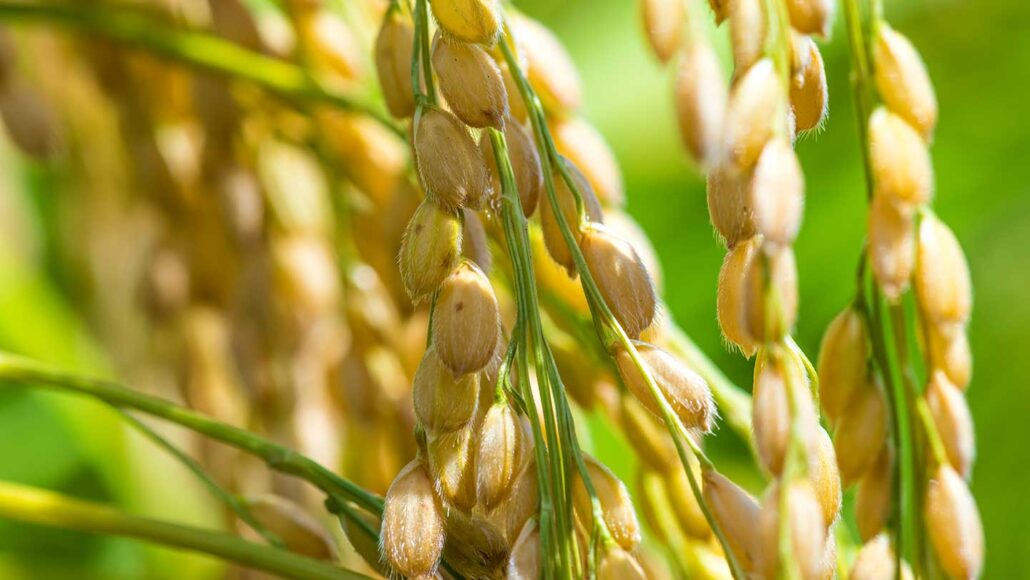
Rice Farming on Earth and Mars: Challenges and Opportunities
Rice is one of the world's most important crops, providing food for billions of people and sustaining the livelihoods of millions of farmers. However, the future of rice farming is uncertain due to a variety of challenges, including climate change, soil depletion, and limited land availability. In this article, we explore the latest research on rice farming on Earth and Mars, and the challenges and opportunities that lie ahead.
The Impact of High CO2 Concentration on Rice Farming According to a recent study, 55% of Indian large rice fields could face yield loss due to high carbon dioxide content in the atmosphere. Rising levels of CO2 not only contribute to global warming but also cause rice plants to grow faster and use more water, which can lead to reduced yields and lower grain quality. High CO2 concentration also affects soil fertility and nutrient availability, making it harder for rice farmers to maintain healthy crops. The situation is particularly challenging in countries like India, where rice is a staple food and a major source of income for millions of farmers.
Also Read:
Gene-Edited Rice: A Solution for Mars Farming As NASA prepares to send astronauts to Mars in the coming years, scientists are exploring the possibility of growing crops on the red planet. A recent study published in New Scientist suggests that gene-edited rice may be able to grow on Mars, providing a potential food source for future missions. Researchers have used CRISPR gene editing to modify rice plants to grow under low-oxygen conditions, which are similar to those on Mars. This breakthrough could pave the way for other crops to be grown in space and help ensure the sustainability of future missions.
Soil Nutrients and Rice Farming Another challenge facing rice farmers is soil nutrient depletion. A recent study published in Science News found that Mars soil contains the nutrients necessary for rice farming, which could make it a potential destination for future agriculture. However, on Earth, soil depletion is a growing concern, as many farmers rely on synthetic fertilizers to maintain crop yields. In addition to being expensive, these fertilizers can also harm the environment and contribute to greenhouse gas emissions. Scientists are exploring alternative approaches, such as crop rotation and organic farming, to help maintain soil fertility and reduce the impact of farming on the environment.
The Greenhouse Planet Book and Rice Farming In his book "Greenhouse Planet," Professor Lewis Ziska examines the impact of climate change on agriculture, including rice farming. He argues that rising temperatures, changes in precipitation patterns, and other environmental factors could lead to reduced crop yields and increased food insecurity. He also highlights the need for farmers to adapt to these changes and adopt more sustainable practices. The book provides a comprehensive overview of the challenges facing agriculture in the coming decades and offers practical solutions for farmers, policymakers, and researchers.
The Importance of Cadmium in Rice Farming Finally, a recent study published in Phys.org highlights the importance of the gene OsHMA3 in regulating cadmium accumulation in rice plants. Cadmium is a toxic metal that can contaminate rice grains, posing a health risk to consumers. By identifying the gene responsible for cadmium transport, scientists can develop new rice varieties that are less prone to contamination and help ensure food safety. This research has important implications for rice farming and underscores the need for continued investment in agricultural research and innovation.
Conclusion Rice farming faces numerous challenges, from high CO2 concentrations to soil depletion and contamination. However, the latest research also offers opportunities for innovation and sustainable agriculture, from gene-edited crops to organic farming and soil restoration. As we look to the future of rice farming on Earth and Mars, it is clear that we must take a proactive approach to addressing these challenges and developing solutions that can help ensure food security for generations to come.
Read More:
That's it for this article.
Thanks for Visiting Us – fixyanet.com


0 Comments